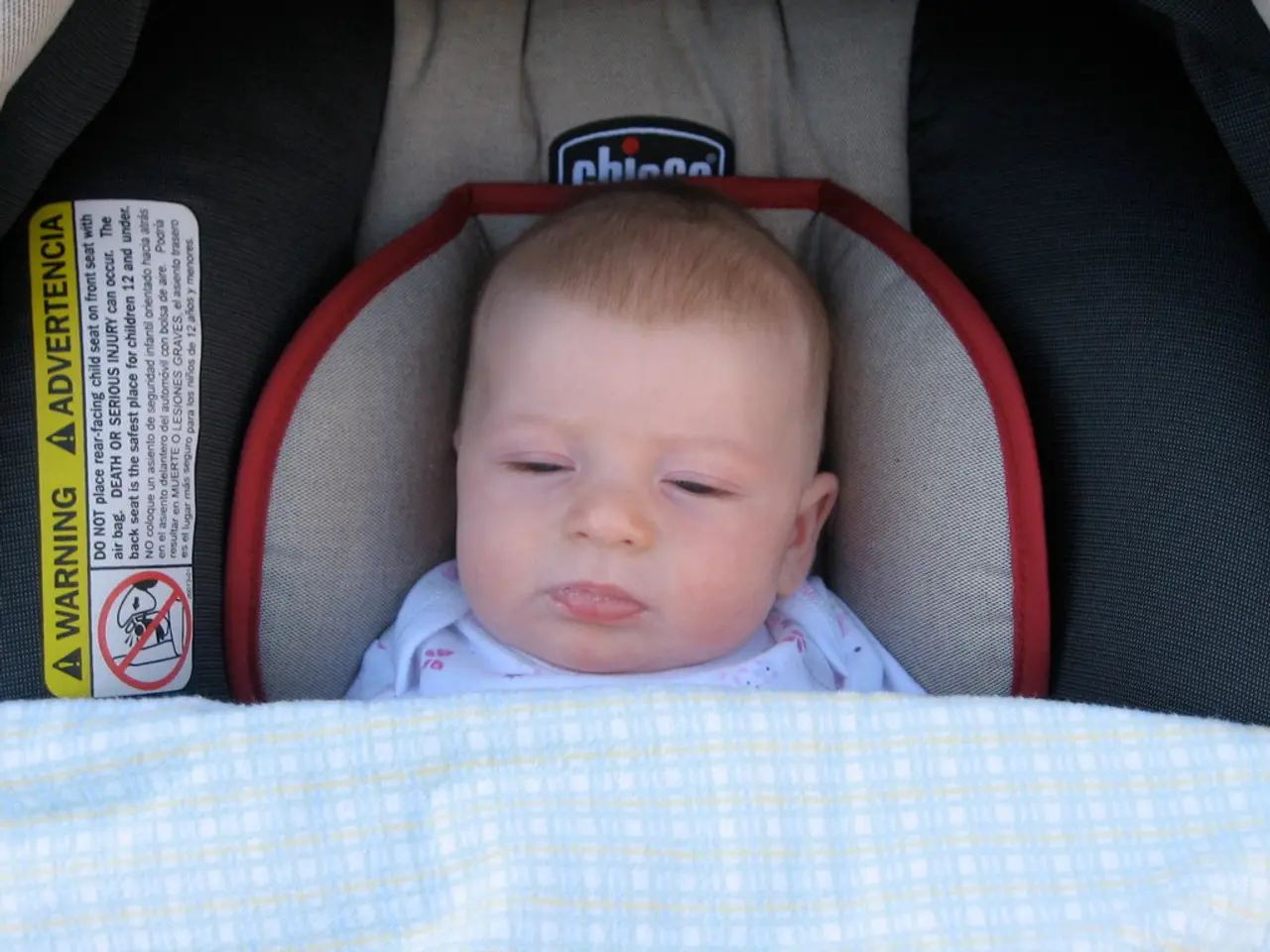Ensuring Infant Safety: Essential Advice for Nigerian Households
In Nigerian homes, ensuring the safety and well-being of babies is a top priority. Here are some practical tips and preventative measures for creating a safe, hygienic, and healthy environment for our little ones.
Firstly, maintaining hygiene and cleanliness is crucial. Newborns should be bathed carefully to avoid water entering their nose or ears, and appropriate water temperature should be used. Regular cleaning of the home helps reduce infection risks.
Protecting against mosquitoes, particularly during the rainy season, is another essential aspect. Long-lasting insecticide-treated nets (LLINs) should be used for babies’ sleeping areas, and mosquito repellents, coils, and stagnant water near the home should be removed to prevent malaria and mosquito-borne diseases.
Ensuring safe water and feeding is vital. Boiled or purified water should be used for drinking and preparing baby food to avoid waterborne illnesses common in some Nigerian homes. Store water in clean, covered containers and avoid unsafe public water sources.
Creating a safe physical environment is also crucial. Keep potentially hazardous items, small objects, and chemicals out of babies’ reach to prevent choking or poisoning. Baby-proof sharp edges, stairs, and electrical outlets.
Dressing babies appropriately according to the weather is essential to prevent infections from temperature extremes.
Monitoring and supporting health is another key strategy. Follow vaccination schedules to protect against common childhood diseases, and seek timely medical care if the baby shows signs of illness.
New parents should prioritize attentive supervision, ensure babies sleep safely (e.g., on their backs), and seek community or professional support with childcare challenges.
Fire safety measures are equally important. Install smoke detectors on each floor of a home, consider using safer alternatives like battery-operated LED candles or nightlights in the nursery, and develop a fire evacuation plan. Regularly discuss fire safety with your entire household and ensure that everyone understands and follows the precautions.
Familiarise yourself with fire extinguisher usage and ensure they are well-maintained and easily accessible. Install safety gates at stairs and doorways to prevent a baby from accessing dangerous areas.
Creating a safe bathing routine is also essential. Never leave a baby unattended in the bath, use a safe and appropriate tub or basin, test water temperature, keep bath products within reach but out of baby's grasp, and dry baby properly and immediately after bathing.
Have an emergency contact list easily accessible in case of a fire, including important numbers such as the fire department, emergency medical services, and neighbors' contact information.
Use socket covers to prevent electrical accidents. Keep a baby's crib or bassinet away from cords, curtains, and other hazards. Avoid using pillows, toys, and heavy blankets in a baby's crib. Supervise mealtimes to ensure safe eating habits.
The blog post provides actionable insights to enhance baby safety, discussing safeguarding babies in Nigerian homes. Regularly test smoke detector batteries and replace them as needed. Keep small objects away to avoid choking hazards. Cover electrical outlets with safety plugs to prevent accidental electrocution.
Encourage breastfeeding for optimal nutrition and bonding. Engage in regular baby-proofing assessments of the home. Prevent choking hazards by cutting food into small, manageable pieces. Install safety gates to restrict access to danger zones such as stairs and windows. Secure furniture to prevent tipping accidents.
Ensure a routine for feeding and sleeping patterns. Avoid using open flames or candles in the nursery. Place a baby on their back to sleep to reduce the risk of choking and facilitate healthy breathing.
Educate caregivers and family members about safety protocols. Use a firm mattress and fitted sheets for a baby's crib or bassinet. Avoid giving hard candies, nuts, and small objects to babies.
By implementing these measures, we can create a safe and nurturing environment to reduce the risk of injury, infection, and disease for babies in Nigerian homes. While specific Nigerian cultural practices are important, integrating general safety and health precautions provides comprehensive protection. Families are responsible for protecting the most vulnerable members of their households.
- In Nigeria, maintaining hygiene and cleanliness is essential for the safety and health of babies, with careful bathing and regular home cleaning reducing infection risks.
- To prevent mosquito-borne diseases, newborns' sleeping areas should be treated with long-lasting insecticide-treated nets, and stagnant water near the home should be removed.
- Using boiled or purified water for drinking and preparing baby food helps avoid waterborne illnesses common in some Nigerian homes.
- Creating a safe physical environment involves keeping potentially hazardous items out of babies' reach, baby-proofing sharp edges, stairs, and electrical outlets, and dressing them appropriately for the weather.
- New parents should prioritize attentive supervision, ensure babies sleep safely, and seek support with childcare challenges from the community or professionals.
- Fire safety measures such as installing smoke detectors, developing a fire evacuation plan, and discussing fire safety with the entire household are important for a baby's safety.
- Regularly testing smoke detector batteries and ensuring they are easily accessible is necessary for effective protection against fires.
- Encouraging breastfeeding for optimal nutrition and bonding, engaging in regular baby-proofing assessments, and educating caregivers about safety protocols are essential for creating a nurturing and safe environment for babies in Nigerian homes.




